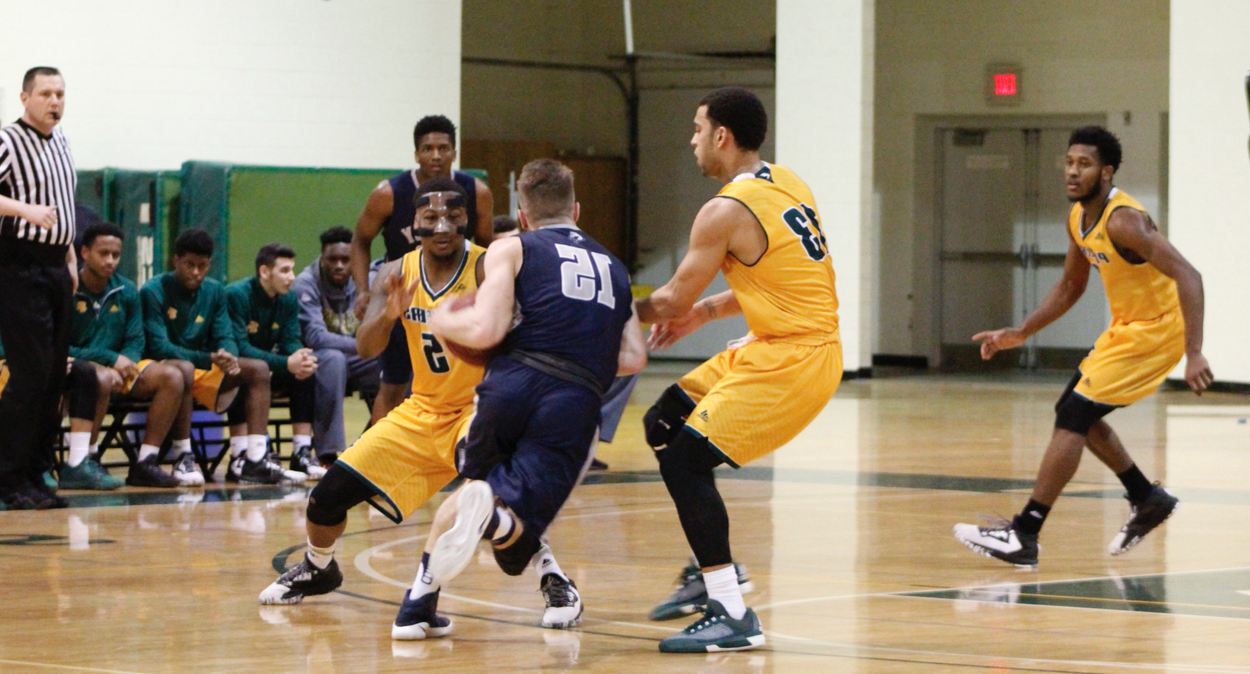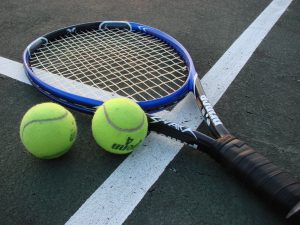Last updated on Feb 17, 2017
By Anand Venigalla & Thomas Gillen
Staff Writer & co-Editor-in-Chief
Several weeks into the spring semester, student athletes must once again learn to manage their time to successfully complete their academic and athletic requirements. Students may apply to college due to the presence of team sports or for academic and economic opportunity. While college students become athletes for many reasons, athletic and academic obligations seem to exist in an antagonistic relationship with one another and student athletes must learn how to successfully balance both.

Some athletes, like freshman English major and women’s soccer goalkeeper Katie Bendersky, handle the balance between sports and academics with ease; they can manage their time in an effective way and don’t have to sacrifice their passion for sports for their education. “It’s a lot of time management,” Bendersky said. “It’s not hard if you manage it well. There are some late nights, but you know, everyone has them.” Despite the pressure of sports, Bendersky feels those late nights are worth it due to the friendship opportunities sports offers. “Being on the team, you have a set of friends who are there to support you. Even though school seems rough, you always have people to go to for help.”
Others however, like senior health administration major and men’s football safety Jared Chester, have a greater struggle with maintaining the sports-education balance, often finding that they need to compromise on one in order to excel in another. “I would either go to class late or practice late,” Chester said. “I’ve had friends who had to drop classes in order to make practice on time. They were told that if they didn’t drop the class, they wouldn’t play. They would end up dropping the class and [would take] it later on.”
Chester stated that sports do have an impact on grades, “due to the time that football asks of you. We have to watch film aside from practice and meeting time and there might be only little time for class.” For Bendersky however, sports has no impact on academics – the two exist in balance, and that balance can be reached with the help of time management.
While balancing sports and academics may require some creative time management, it might allow athletes an extra hour to devote to their schoolwork. Chester suggested “mandatory library time” as something he would like to take part in. “After a game, an off day, just to spend one hour in the library for schoolwork, away from the dorms, away from football.”
The athletic department has a mandatory study hall on Monday and Thursday evenings; according to head women’s basketball coach Deirdre Moore. While the study hall is open to all student athletes, any student athlete with a GPA under 2.5 is required to attend. “During this athletic department study hall there is a staff member that monitors the session and we get tutors for the subject areas that the student- athletes request help in. We work closely with the library and Writing Center to assist student athletes with papers and writing assignments,” Moore said.
Besides mandatory study hall twice a week, coaches also hold additional study hall for their entire team. Moore stated that she holds study hall two or three times a week for two hours in the library and believes that student athletes are able to successfully manage their academic and athletic commitments. “More than 50 percent of our student athletes have achieved a 3.0 or higher fall term GPA. That is something to monitor and recognize each semester. Being a student athlete allows each to learn how to manage their time. They are often given a calendar that outlines their class time, practice time and study time. For women’s basketball, we have a team cumulative GPA of 3.17 and that includes several players who did earn a 4.0 last semester. The cumulative GPA of our department is over a 3.0, which shows that the student athletes have learned to manage their time well.”



Be First to Comment